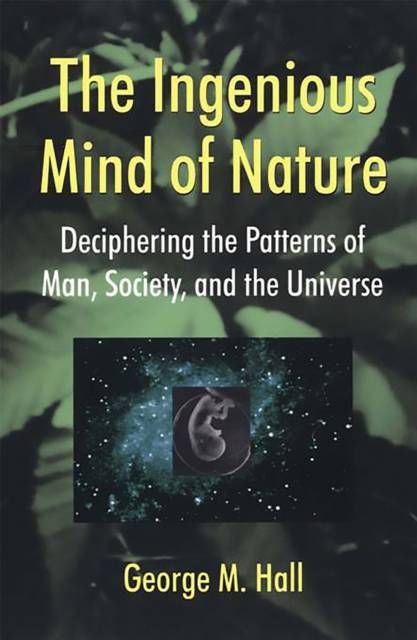
En raison d'une grêve chez bpost, votre commande pourrait être retardée. Vous avez besoin d’un livre rapidement ? Nos magasins vous accueillent à bras ouverts !
- Retrait gratuit dans votre magasin Club
- 7.000.000 titres dans notre catalogue
- Payer en toute sécurité
- Toujours un magasin près de chez vous
En raison de la grêve chez bpost, votre commande pourrait être retardée. Vous avez besoin d’un livre rapidement ? Nos magasins vous accueillent à bras ouverts !
- Retrait gratuit dans votre magasin Club
- 7.000.0000 titres dans notre catalogue
- Payer en toute sécurité
- Toujours un magasin près de chez vous
The Ingenious Mind of Nature
Deciphering the Patterns of Man, Society, and the Universe
George M Hall
Livre broché | Anglais
36,95 €
+ 73 points
Format
Description
George Hall - teacher, historian, engineer, and computer analyst - uniquely draws upon the competing perspectives of traditional science, the exciting new science of chaos, and the burgeoning and important tenets of complexity theory, catastrophe theory, and fuzzy logic to look for a common theme. All of these perspectives, he finds, are fundamentally united by a common theme: the crucial patterns of elements and their dynamic change over time. Order - be it the growth of a fetus or the rumbling shift of continents - evolves because these patterns are themselves the blueprint and the "programs" by which nature shapes our awe-inspiring universe. Hall takes this elegant concept and carries it from the simplest phenomena to the most complex, including the evolution of the species. He then extends these concepts beyond the physical sciences, into the fascinating provinces of philosophy, computer programming, psychology, economics, political science, international relations, law, and ethics. In doing so, he tackles the challenging question of human behavior. Since we humans have initiative and can sometimes change the natural course of events, how can we find a system to understand our own actions and the workings of society at large? This captivating book explains the mechanics of change and provides a provocative concept that accounts for the growth and decline of all systems, be it the universe at large, the miracle of life on earth, or our own thought processes as we contemplate and unlock the mysteries around us. This evocative perspective on nature offers food for thought to general readers and scientists alike by illuminating the ingenious patterns that influence the course of humanity and the universe.
Spécifications
Parties prenantes
- Auteur(s) :
- Editeur:
Contenu
- Nombre de pages :
- 464
- Langue:
- Anglais
Caractéristiques
- EAN:
- 9780738205847
- Date de parution :
- 10-08-01
- Format:
- Livre broché
- Format numérique:
- Trade paperback (VS)
- Dimensions :
- 137 mm x 208 mm
- Poids :
- 494 g

Les avis
Nous publions uniquement les avis qui respectent les conditions requises. Consultez nos conditions pour les avis.






